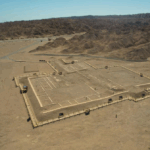Since the beginning of 2024, Chongqing has handled over 6,000 administrative reconsideration cases involving businesses, with a case resolution rate of 92.11%, recovering economic losses of 171 million yuan for enterprises.
During a press conference, it was stated that allowing citizens to have a place to voice their concerns and ensuring administrative departments correct their mistakes is the fundamental duty of administrative reconsideration supervision. In recent years, Chongqing has been working to strengthen the capacity of administrative reconsideration in resolving administrative disputes. In 2024, the city saw over 12,000 new administrative reconsideration cases. Meanwhile, Chongqing continues to improve the quality and efficiency of administrative reconsideration case handling, adhering to the principle of correcting all errors, ensuring proper implementation of laws and regulations, and striving to deliver fairness and justice in every administrative reconsideration case. The role of administrative reconsideration as the main channel for resolving administrative disputes is gradually becoming more prominent.
To facilitate public access to legal rights protection channels, Chongqing has integrated administrative reconsideration responsibilities, achieving “one reconsideration body per level of government,” which resolves the difficulty of “where to apply for reconsideration.” Chongqing has established “business-friendly and public-convenient” administrative reconsideration contact points in every district’s government service hall, enterprise parks, public legal service centers, and judicial offices, allowing citizens to apply right in their neighborhoods. Additionally, Chongqing has launched the “Chongqing Mobile Reconsideration” application system, enabling online submission of administrative reconsideration applications within 2-3 minutes, reducing the need for in-person visits while speeding up acceptance.
In resolving administrative disputes, Chongqing promotes standardization through transparency, implementing online processing and progress tracking via a unified network. During case handling, applicants’ opinions are fully considered, hearings are regularly conducted, shifting from “document-based review” to “open case handling.” Professionalism is promoted through standardization by publishing case handling guidelines and typical cases, while major cases involve relevant experts to provide professional opinions, addressing public concerns and winning public trust. Mechanism-driven standardization is achieved through innovative handling of administrative dispute cases involving enterprises, implementing fast-track processing for all cases, specialized handling for complex cases, and supervised handling for important cases.
Furthermore, Chongqing focuses on areas closely related to enterprise and public production and living, such as administrative penalties, administrative licensing, and administrative expropriation, strengthening case-specific supervision and error correction, ensuring any administrative agency errors are rectified. Additionally, “case category standardization” is enhanced, addressing common issues in administrative law enforcement, including unclear facts, procedural violations, and improper discretionary power. Over 50 problems have been identified, while 483 administrative reconsideration opinions and suggestions have been issued, promptly correcting improper administrative law enforcement behaviors and urging administrative agencies to further standardize lawful administration.


